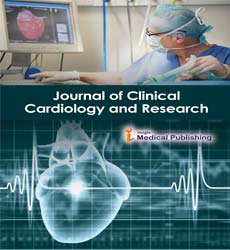Antiplatelet agents as a novel therapy of heart failure due to myocardial infarction
Abstract
Background: Although different antiplatelet agents are used for the prevention of thrombosis and treatment of ischemic heart disease, very little information regarding therapeutic potential of these agents in heart failure is available.
Objectives: We have investigated the effects of some antiplatelet agents such as sarpogrelate (SAR) and cilostazol (CIL) treatments on cardiac dysfunction, cardiac remodeling and subcellular defects in heart failure due to myocardial infection.
Methods: Heart failure in rats was induced by including the coronary artery for 8 weeks and the drug treatment was started 4 weeks after inducing myocardial infarction.
Results: Marked depression in cardiac output and ejection fraction as well as increases in heart rate, left ventricle (LV) thickness and LV volume in the infarcted animals were attenuated by SAR and CIL. Alterations in myofibril Ca2+-ATPase, as well as myosin ribozyme contents and gene expression in the failing heart were reduced by SAR and CIL. Likewise, changes in sarcoplasmic reticular Ca2+-uptake and release activities, Ca2+-pump and Ca2+-release protein content as well as their mRNA levels were attenuated by both drug treatments.
Biography: Naranjan S Dhalla is a Distinguished Professor and Director of Cardiovascular Developments, St. Boniface Hospital Albrechtsen Research Centre, Max Rady College of Medicine, Rady Faculty of Health Sciences, University of Manitoba, and Winnipeg, Canada.
Conclusions: These results provide evidence that both SAR and CIL delay the progression of heart failure and improve cardiac function by attenuating cardiac remodeling, subcellular defects and abnormalities in cardiac gene expression. It is suggested that antiplatelet agents may prove to be a viable therapy for the treatment of heart failure. (Infrastructure support for this study was provided by the St. Boniface Hospital Foundation).
Antiplatelet agents are medicines that reduce the ability of platelets to stick together (called platelet aggregation) and inhibit the formation of blood clots. Antiplatelet agents play a major role in the treatment and prevention of myocardial infarction (heart attacks), stent thrombosis, and ischemic stroke (strokes caused by a blood clot)
Antiplatelet agents are drugs that inhibit enzymes or receptors required for platelet activation, platelet aggregation, and/or thrombus formation.
Open Access Journals
- Aquaculture & Veterinary Science
- Chemistry & Chemical Sciences
- Clinical Sciences
- Engineering
- General Science
- Genetics & Molecular Biology
- Health Care & Nursing
- Immunology & Microbiology
- Materials Science
- Mathematics & Physics
- Medical Sciences
- Neurology & Psychiatry
- Oncology & Cancer Science
- Pharmaceutical Sciences
